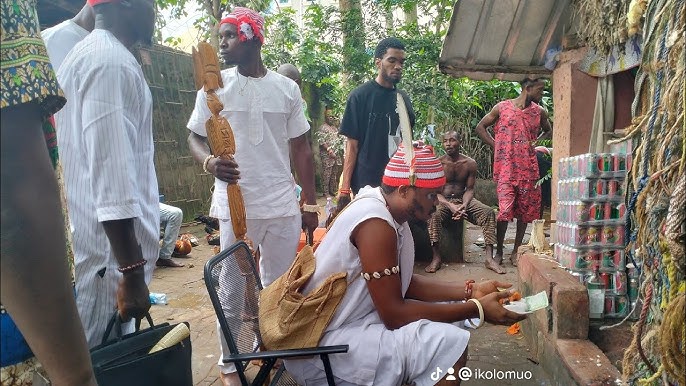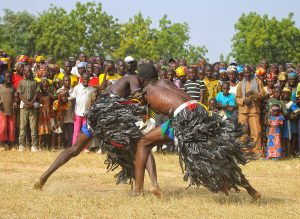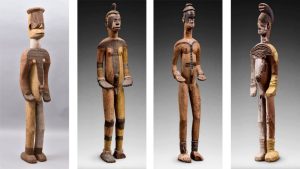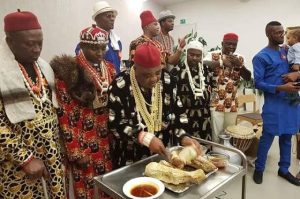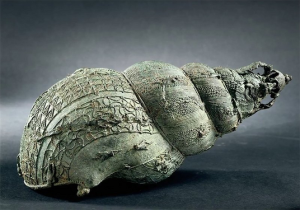Deeply ingrained in Igbo society, Mbọsa, or traditional divination, provides a method of comprehending the physical and spiritual worlds. Like many African civilizations, the Igbo people believe that the visible and unseen worlds are intertwined where the spiritual world shapes the practical life of people and groups. Mbọsa is the process by which the Igbo interact with gods, ancestors, and spirits to get understanding of many facets of life, including health, wealth, social peace, and justice. Emphasizing Mbọsa’s ongoing importance in Igbo culture, this paper investigates its significance, techniques, and modern relevance.
Cultural and Spiritual Significance
According to Igbo cosmology, a great variety of spiritual entities—including gods, ancestors, and other supernatural entities—that affect human affairs occupy the planet. Respected as middlemen between the living and the gods, the ancestors are said to have knowledge and insight that could direct the living. Central to the spiritual beliefs of the Igbo people are also the gods, each connected to certain aspects of life such as fertility, health, or justice.
The main tool the Igbo use from these supernatural powers to ask for direction and assistance is Mbọsa. Divination is said to help people and societies to discover the secret will of the gods and ancestors, therefore enabling them to make wise choices, prevent disaster, and preserve peace with the spiritual world. Mbọsa is a holy ceremony reflecting the great spiritual and community values of the Igbo people, not just a kind of fortune-telling.
The Role of the Dibia
Mbọsa is practiced by a diviner called a dibia, often known as dibịa afa. Considered to have a great awareness of the spiritual realm and the capacity to interact with supernatural creatures, the dibia is a highly revered person in Igbo culture. Usually involving a lengthy and demanding apprenticeship under an experienced diviner, becoming a dibia teaches the trade’s secrets, including divining equipment, ceremonies, and sign and symbol interpretation.
Along with a spiritual leader, the dibia serves as a communal mediator, healer, and counselor. People visit the dibia for counsel on personal concerns, conflict resolution, sickness diagnosis, or cause of misfortune determination among other purposes. Mbọsa is used by the dibia to expose secret facts, spot underlying issues, and provide suitable treatments or advice to bring harmony and balance back in mind.

Methods of Mbọsa
Mbọsa calls for many divining procedures, each with special equipment and approaches. The dibia’s experience, the kind of the research, and the client’s preferences will all influence the approach used. Common techniques of Mbọsa in Igbo society include of:
- Ichi Afa (Casting of Cowries)
Among the most common kinds of divination in Igbo society is ichi afa, or casting of cowries. The dibia lays a group of cowries or other tiny things on a mat or surface. The way the things arranged themselves then helps one to decipher signals from the spiritual realm. Every position and orientation of the cowries has particular connotations; the dibia decodes these signals using their expertise to provide direction.
- Oguega (Divination Board)
The dibia employs a unique divination board, usually constructed of wood, etched with symbols and patterns. Tracing or sketching patterns on the board, the divinity method is then interpreted by the dibia. Highly symbolic and requiring a thorough awareness of the spiritual language buried in the patterns, the Oguega technique
- Afa Obodo (Oracle Consultation):
Under this approach, the dibia would visit a local oracle—a supernatural entity said to live in particular shrines or holy sites. Oracle Consultation, Afa Obodo Rituals and gifts enable the oracle to be consulted; its replies are expressed by signs, visions, or the words of the priest or priestess tending to it. For issues of communal relevance, including as conflicts or big decisions affecting the whole society, this approach is usually used.
- Onyonyo Afa (Mirror or Reflective Surface):
In this kind of divining, the dibia sees visions or pictures from the spiritual realm using a reflecting surface—such as a mirror or a bowl of water. Often connected with finding clarity on difficult problems or future event prediction is this approach.
Rituals and Offerings
Mbọsa is more than simply the act of divination; it usually consists of a set of ceremonies and gifts meant to placate the spirits, respect the ancestors, and guarantee the correctness of the divining. Usually providing gifts of kola nuts, palm wine, or other symbolic objects to the gods and ancestors, the dibia prepares the holy area before Mbọsa. These presents show respect and a call to the spirits’ favor and assistance.
The dibia could also carry out certain ceremonies meant to purify the area, shield the attendees from bad energy, and strengthen the spiritual link. These ceremonies could call for burning incense, chanting incantations, and using holy artifacts like amulets or charms. The Mbọsa procedure depends on the rites and gifts as they create a holy environment fit for precise and significant divining.
Social and Ethical Dimensions
Mbọsa permeates Igbo society’s social fabric really strongly. Maintaining social order, settling disputes, and preserving community values all depend on it in great part. Whether within families or between many groups, conflicts emerge and the dibia may be called upon to conduct Mbọsa to expose the truth and provide a line of action supporting justice and peace. Mbọsa therefore acts as a traditional legal and ethical framework that enhances the official governmental systems.
Mbọsa’s focus on harmony and balance clearly reveals its ethical component as well. The Igbo believe that a disturbance of the natural order or a transgression of moral or spiritual rules usually causes disaster, disease, or war. By use of Mbọsa, the dibia locates the cause of the imbalance and provides remedies—which can be either sacrifices, atonement, or behavioral modification. Restoring peace within the person, the family, and the society is always the aim.
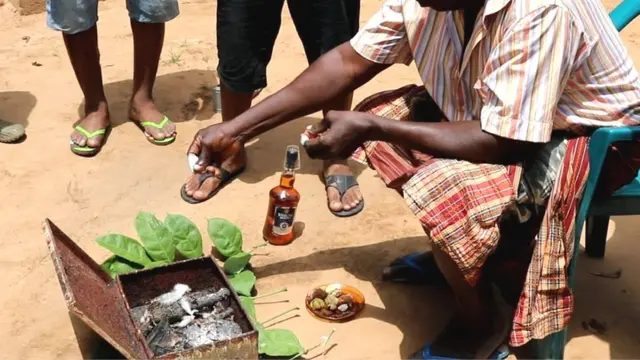
Contemporary Relevance and Challenges
Mbọsa is still significant in many Igbo villages despite the general impact of Christianity, Islam, and modernism. It is still carried on, especially in rural regions where more robust traditional beliefs and practices abound. For many, Mbọsa provides a deeply ingrained in their cultural identity and spiritual legacy alternative or supplementary way to analyze and handle issues of life.
Still, Mbọsa has major difficulties in the modern society. Traditional religious traditions such Mbọsa have been abandoned since many converts see them as incompatible with their new religions as Christianity and Islam have grown. Furthermore, modernity and urbanization have upset established patterns of life and resulted in a loss of knowledge and experience in Mbọsa practice. Divine commercialization—where charlatans profit from people’s beliefs—has also introduced dishonesty and mistrust to the profession.
Notwithstanding these difficulties, there is continuous endeavor to protect and revive Mbọsa as a fundamental component of Igbo cultural legacy. While keeping its fundamental ideas, some practitioners are modifying Mbọsa to fit current settings and combining it with modern ideas and methods. Education and documentation projects as well as other cultural preservation projects assist to guarantee that Mbọsa’s knowledge is handed down to next generations.
Conclusion
The Igbo people’s ancient divination custom, Mbọsa, is a rich statement of their spiritual and cultural identity. It provides direction, healing, and insight into the secrets of life, therefore linking the physical and spiritual realms. Mbọsa helps to preserve peace and balance in the society by means of the competent work of the dibia, therefore addressing the ethical, social, and spiritual aspects of existence.
Although Mbọsa struggles in the contemporary world, its continuing significance indicates to the great cultural and spiritual demands it still meets. Mbọsa is still a potent instrument for comprehending and interacting with the spiritual forces guiding the Igbo people through the complexity of modern life.
Please read all our stories on African Culture here
